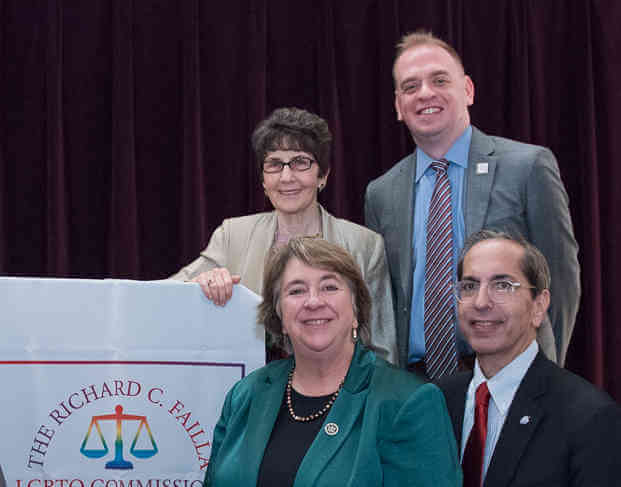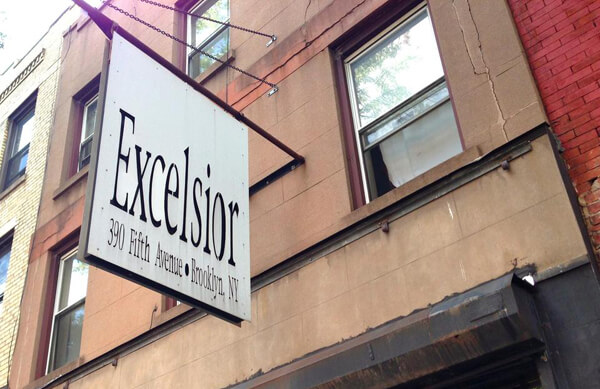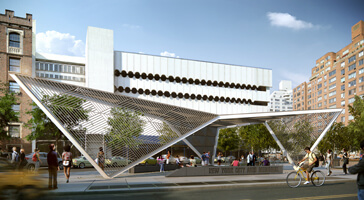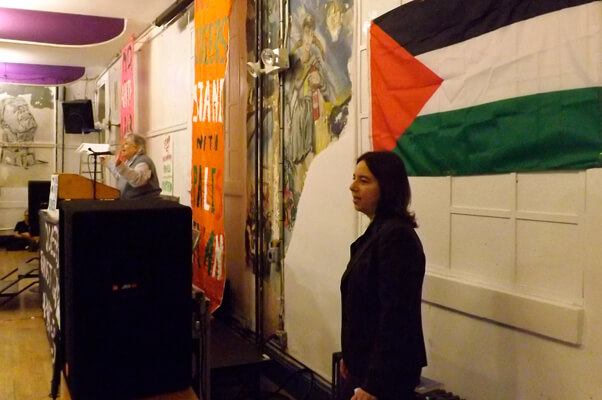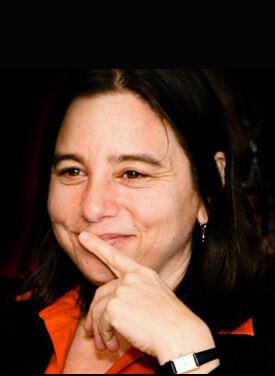Justice Marcy Kahn, the first out lesbian appointed to the New York City Criminal Court, in 1987, and later elected to the State Supreme Court, in 1994, has retired from the State Appellate Division’s First Department bench in Manhattan.
Kahn’s colleagues and friends — from the New York State Unified Court System, the LGBT Community Center, the LGBT Bar Association of Greater New York (LeGaL), and the Richard C. Failla LGBTQ Commission of the New York Courts — gathered at the Center on October 30 to honor her contributions both to the criminal justice system and to the LGBTQ community.
Since 2016, Kahn has served as co-chair of the Failla Commission, which works to “foster a more equitable, supportive environment” for LGBTQ members of the state’s justice system. According to the commission’s executive director, Matthew J. Skinner, Kahn will remain active with the group but is stepping down from her co-chair post, as well as the bench.
Prior to her appointment by Mayor Ed Koch to the City Criminal Court, Kahn was a partner at Anderson Kill & Olick, after having served as a special assistant attorney general investigating corruption in the city’s criminal justice system.
During the same period, Kahn was also the founding chair of the LGBT Community Center. In that role, she led the negotiations for the purchase of the Center’s West 13th Street building from the city — a critical moment in creating a permanent space for LGBTQ groups, organizing, and gatherings in the city. Kahn has also served on the boards of Lambda Legal, the Hetrick-Martin Institute, and Gay Men’s Health Crisis.
Kahn served on the city’s Criminal Court bench from 1987 until her election to the State Supreme Court in 1994. She was reelected in 2008, and Governor Andrew Cuomo appointed her to the Appellate Division in 2016.
The October 30 event featured longtime leaders in the LGBTQ community and the state’s judicial system who all spoke to the extraordinary reach of Kahn’s diverse work over the years.
Richard Burns, who is the interim CEO of Lambda Legal and for 23 years served as executive director of the Center, recalled meeting Kahn in 1985, describing her as an “early activist” in forging New York’s LGBTQ community and highlighting the key role she played in pushing a reluctant Mayor Koch to allow for the West 13th Street building’s purchase.
Joy Beane, a court attorney and referee in the Westchester County Surrogate’s Court, and Justice Elizabeth Garry, who presides over the Appellate Division’s Third Department, spoke of Kahn’s role leading the New York Tribal Courts Committee, which works with judicial officials from the state’s sovereign Native American nations. Both recounted Kahn’s participation in a delegation that met with Pope Francis and urged him to rescind a series of 15th century papal bulls that purportedly provided justification for Europeans to take lands in the Western Hemisphere in the name of Christianity.
Congregation Beit Simchat Torah Rabbi Sharon Kleinbaum lauded Kahn for her humility in undertaking her bat mitzvah as adult about 15 years ago. Though a renowned jurist, Kleinbaum said, Kahn was willing to acknowledge that in her faith she was a “beginner.” The rabbi recalled the ceremony where Kahn combined an ancient prayer with an affirmation about the rule of law in civil life and the paramount importance of distinguishing between the role of faith and the authority of the state.
Other speakers at the event included State Court of Appeals Associate Justice Paul Feinman, State Supreme Court Justice Ruth Pickholz, and retired Appellate Division Associate Justice L. Priscilla Hall.
When it came time for Kahn herself to speak, she recalled being raised by civil rights activist parents in Phoenix and spending much of her college career as an anti-war/ SDS/ anarchist activist until she decided to attend law school as a senior at Stanford. After graduating from the New York University School of Law and passing the bar, she said, she was the only lesbian lawyer she knew.
“I never dreamed of a career on the bench,” Kahn said of her early years as an attorney. But she also recalled that her parents taught her “not to be afraid to take risks.”
Kahn has not announced her specific plans for the future but indicated that she plans to do advocacy on issues including climate change, sustainable development, human rights, and the rule of law.
On climate change, she said, “We are faced with an existential threat,” and regarding the rule of law, she noted the dangers posed by Donald Trump’s presidency, saying, “Democratic norms that we have long held sacrosanct are under attack… and seemingly on the verge of collapse.”
Kahn was joined at the Center gathering by her spouse, Dr. Diane Churchill. The couple is celebrating their 40th wedding anniversary this year, and each of the speakers took time to acknowledge Churchill’s partnership alongside Kahn through her long career.
Among many accolades, Kahn has been honored by the New York chapter of the National Association of Women Judges, LeGaL, the LGBTQ Victory Fund, and — along with the Failla Commission’s Skinner and her co-chair there, Appellate Division Justice Joanne Winslow — with a Gay City News Impact Award.


